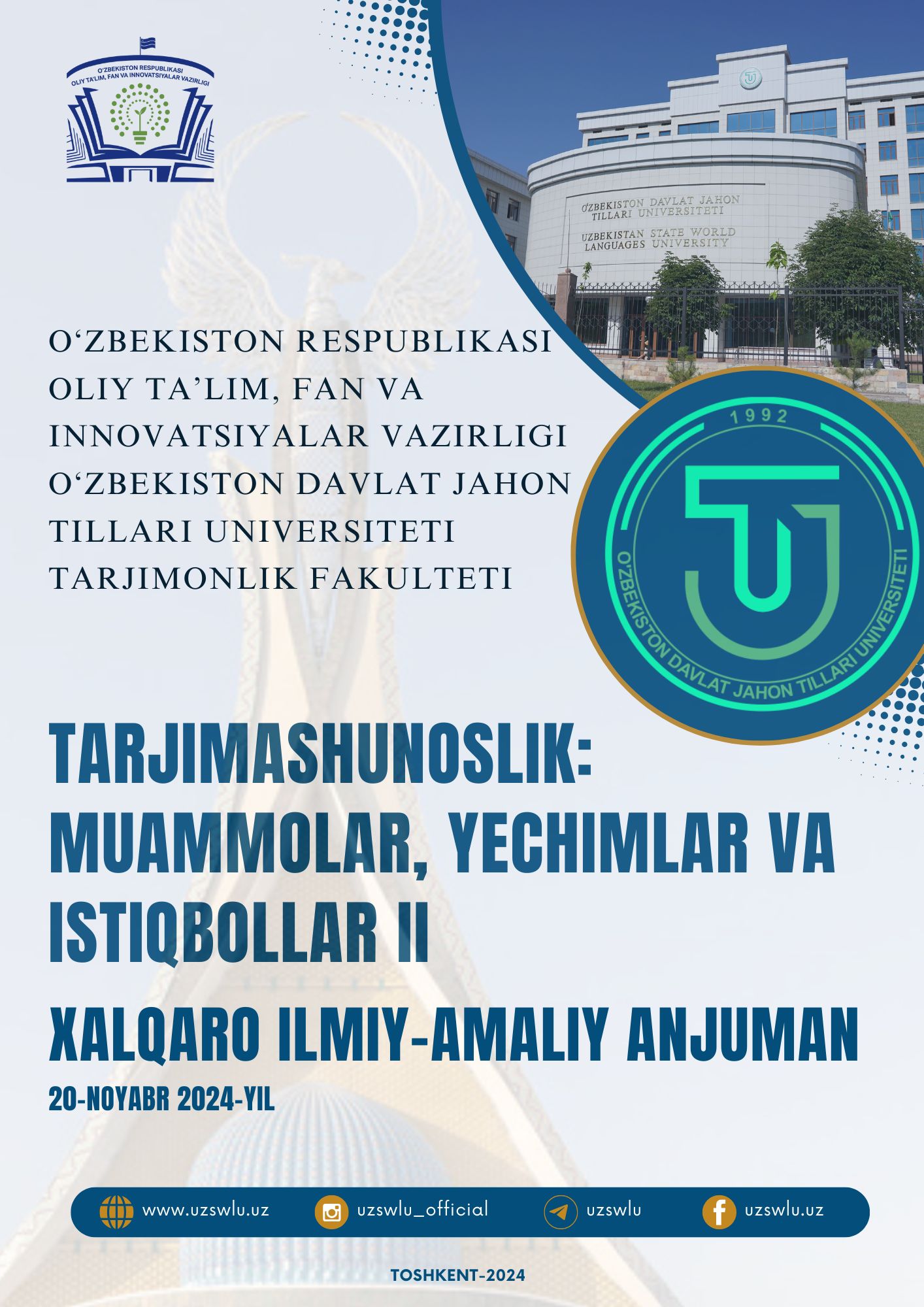EXPLORING THE INTERSECTION OF LANGUAGE AND MELODY: A COMPARATIVE ANALYSIS OF MUSIC-RELATED LEXICON IN ENGLISH AND UZBEK
Kalit so‘zlar
Music-related lexicon, linguistic analysis, cultural identity, musical instruments, music genres, cultural values, comparative analysisAnnotasiya
This article explores the intersection of language and melody through a comparative analysis of music-related vocabulary in English and Uzbek. It highlights how the lexicons in both languages reflect unique cultural identities, values, and social practices. The research delves into various aspects, including terminology related to musical instruments and genres, as well as the cultural significance of song lyrics. Key findings reveal that English music vocabulary tends to emphasize individualism and contemporary themes, while Uzbek musical terms underscore tradition and collective identity. By synthesizing existing literature and conducting a detailed analysis, the article provides insights into the broader implications of musical terminology for understanding cultural narratives and societal values within different linguistic contexts. Future research directions suggest examining the impact of globalization on local music and the evolution of musical lexicons in both cultures.
Foydalanilgan adabiyotlar ro‘yhati
Roth, M., & Baddeley, B2 A. D. (2010). Language and Music as Cognitive Systems. Oxford University Press. 5(2), 34-45.
Umarov, N. (2018). Uzbek Musical Terminology: A Cultural Perspective. Tashkent State University of Economics Press. 2(1), 53-58.nhb
Khikmatova, G. (2020). The Role of Language in Traditional Music of Uzbekistan. Journal of Uzbek Musicology, 1(4), 14-18.
Hobsbawm, E. (2012). Revolutionaries: Contemporary Essays. New Press. 5(2), 34-45.
Negus, K. (1996). Music Genres and Corporate Cultures. Routledge. 5(2), 14-25.

